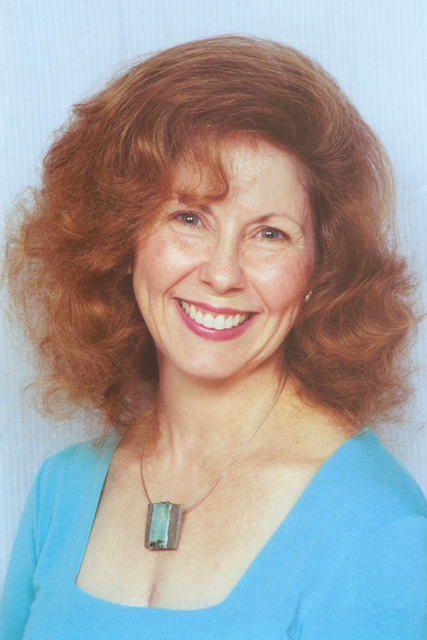Keynote 2019
Creating a Safe Critical Learning Environment: Sharing Best Practices
Thursday, May 2, 2019
Keynote Address 8:45 a.m. - 9:45 a.m.
Edmonton Clinic Health Academy (ECHA) Lower Level L1-190
One of the true joys of teaching is watching students develop intellectually and personally. As educators, we create the learning environment in which such development may be stimulated. Using multiple examples from teaching both a largely lecture-based Medical Neuroscience course to second year medical students and an entirely discussion-based capstone course to undergraduates, Dr. Norden will share her reflections on what elements of the learning environment are especially relevant for fostering knowledge acquisition, critical and analytical thinking, higher-order reasoning skills, and personal reflection in students.
Jeanette J. Norden, PhD
Dr. Jeanette Norden is Professor Emerita, Department of Cell and Developmental Biology, Vanderbilt University School of Medicine. For over 20 years, she conducted research on nerve regeneration, focusing on GAP-43, a protein involved in nervous system development, regeneration, and plasticity. From 1981-2013, she also taught medical, graduate, and undergraduate students and acted as Director of Medical Education in the Department of Cell and Developmental Biology until her retirement. She was a maverick in Medical Education, stressing not only intellectual, but also personal and interpersonal development in students. Her emphasis on personal development and her innovative approach in integrating 'humanity' into a basic science course was recognized at Vanderbilt, nationally and internationally. She won every award given by medical students, including the Shovel (three times; given by the graduating class to the faculty member who has had the most positive influence on them in their four years of medicine), the Jack Davies Award (ten times; for Teaching Excellence in the Basic Sciences), and the Outstanding Teacher of the Year Award (four times). She was awarded the first Chair of Teaching Excellence at Vanderbilt University, and was the first recipient of both the Gender Equity Award of the American Medical Women's Association, and the Teaching Excellence Award given by the Vanderbilt Medical School. In 2000, she was the recipient of the Robert J. Glaser Award, a national teaching award from the Alpha Omega Alpha Honor Society of the American Medical Association to honor the best medical school teachers in the United States. In recognition of her devotion to helping medical students develop into caring, compassionate physicians, Dr. Norden was awarded the 2008 Professional Award from The Compassionate Friends, an international group for bereaved parents. She was awarded the John Chapman Award, a national award for Transformative Innovations in Medical Education in 2010, and in 2012 the Arnold P. Gold Foundation Leonard Tow Humanism in Medicine Award given to a faculty member judged to be exemplary in their compassion and sensitivity and for exhibiting the highest standard of humanism in medicine. Medical students at the Joan C. Edwards School of Medicine of Marshall University awarded her the Humanism in Medicine Award (2014), the Extraordinary Commitment to Learning Award (2017), and most recently, the Laura Richardson Award for Commitment to Learning (2018).
Dr. Norden participates in numerous outreach programs in the Nashville area by going to schools or by giving public lectures on psychoactive drugs, Alzheimer's disease, and other topics related to the Neurosciences. She has taught very popular courses as part of Osher Retirement Learning at Vanderbilt, and has been a speaker on two Scientific American Insight Cruises. She has traveled extensively to give scientific presentations, talks and workshops on teaching, or to teach Medical School (Meharry Medical School; Nepal; Marshall University School of Medicine); she has also participated in several cross cultural humanitarian and educational programs internationally. Dr. Norden served as the external reviewer for a Keck Foundation grant to revise undergraduate science education in 16 colleges in the South. She was highlighted as one of the most effective teachers in America in What the Best College Teachers Do (K. Bain, Harvard University Press, 2004), and was the focus of a documentary made by the Korean Public Broadcasting network on Teaching Excellence in America; she was one of 6 teachers profiled in The Art of Teaching: Best Practices from Master Educators; in 2016, she was one of the scientists interviewed for a documentary on Alzheimer's Disease The Truth About Memory Loss. Dr. Norden has been invited to give over 150 presentations on teaching at Universities and Medical Schools. In 2007, she completed a 36 lecture DVD Understanding the Brain as part of the Great Courses series for The Teaching Company in an effort to help inform the public about the brain and common neurological disorders. In recognition of her impact on helping to educate the public about the brain and neurological disorders, in 2011 the Vanderbilt Brain Institute and Center for Neuroscience at Vanderbilt established an annual Jeanette J. Norden Outreach Lectureship in her honor.
